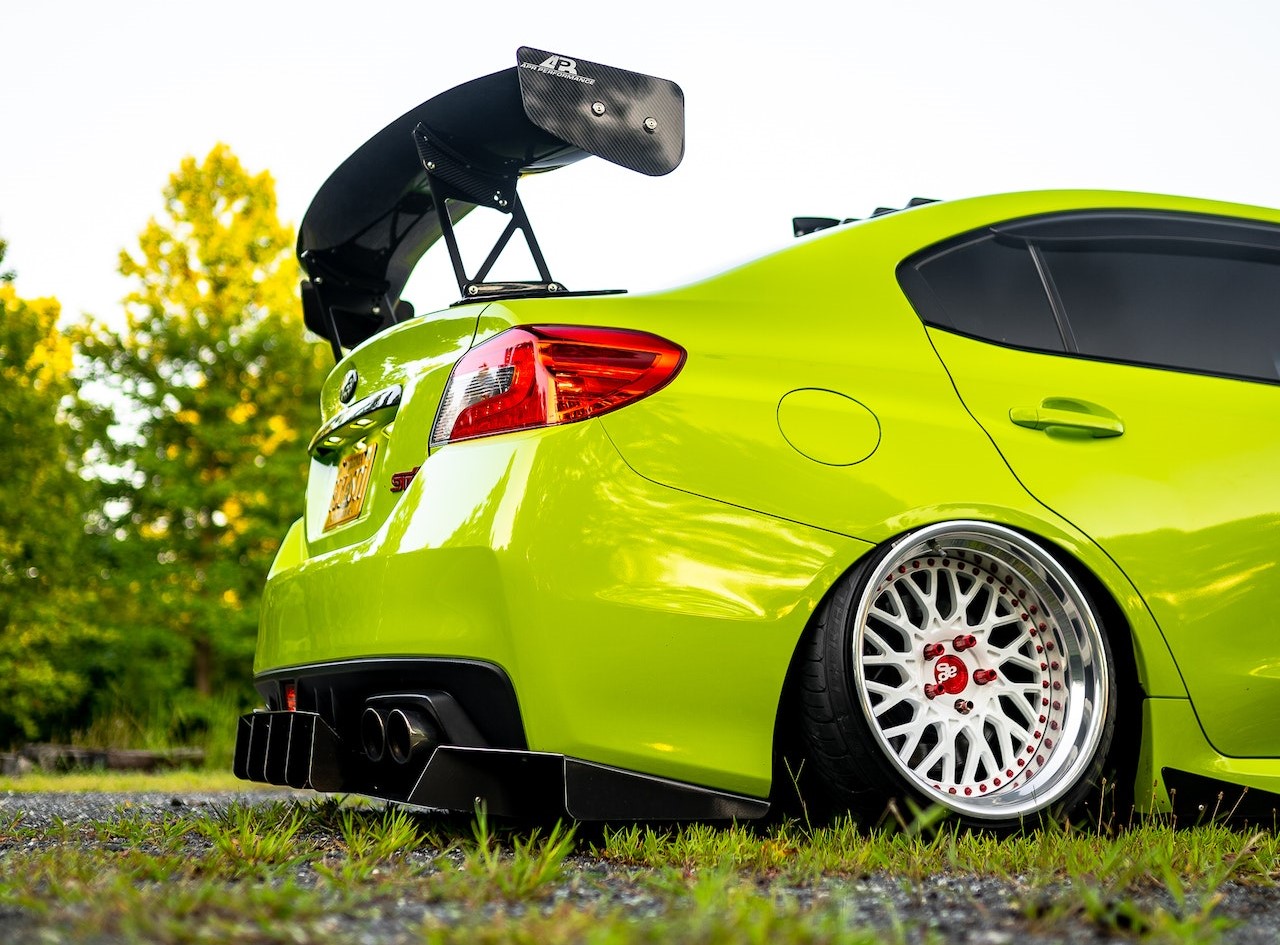November 6, 2021
Should You Avoid These 5 Car Modifications When Selling?

Photo by Garvin St. Villier under Pexels License
In this guide, you’ll discover how the modifications you make to your car can either boost or lower its resale value. You’ll pick up straightforward tips on what attracts buyers and what pushes them away, from bold lighting upgrades to roaring exhausts. You’ll also learn which modifications are easy to reverse and which ones could leave permanent effects. Whether you’re upgrading your ride for style, performance or pure enjoyment, this resource will help you make smarter decisions. And if selling your vehicle doesn’t go as planned, you’ll see how donating it can become a powerful way to give back, support struggling veterans and still receive meaningful benefits in return for your generosity.
A vehicle often reveals much about you as its owner. The make, model, mileage and even the condition of its interior and exterior can reflect your attitude and overall approach to life.
That’s why many car owners like you add personal touches, modifying their vehicles to stand out. Some of these changes are designed to boost performance, while others are made purely to improve appearance.
Your car’s resale value will always be influenced by the modifications you make. It also depends on who you’re selling to and what market you’re targeting. If you find buyers who value body or performance mods, you can sell your car for a higher price, often factoring in the cost of upgrades. However, if your buyer is simply looking for a reliable commuter vehicle, they may not be willing to pay more for those modifications.
Not all modifications hurt resale value. Some small changes may not affect it much at all. To make things clearer for you, Veteran Car Donations has listed below five major mods that can noticeably impact your car’s value.
What Are the Top 5 Car Modifications That Affect Resale Value?
- Body modifications
Your new spoiler or hood might not appeal to others the way it appeals to you. Consider removing body mods, touching up the paint color and selling the parts separately. - Exhaust mods
Loud mufflers tend to lower value. Reverting to a stock exhaust before selling can make your car more appealing, unless you find a buyer who also enjoys the extra noise. - Aftermarket rims
Well-chosen rims can raise resale value. Poorly chosen ones can do the opposite. If in doubt, reinstall the original rims. - Car lights
Not everyone likes blue headlights. Bulb changes usually aren’t a big deal, but altered lenses can reduce value significantly. - Engine mods
Modified engines make daily drivers harder to sell. Even if you invested thousands in upgrades, most buyers want stock engines for reliability.
What Are the Most Common Regrets People Have After Modifying Their Cars?
One of the biggest regrets car owners express after modifying their vehicles is realizing that the money they invested does not translate into higher resale value. While upgrades like custom rims, flashy lights or performance exhausts may feel exciting at the moment, they often limit your buyer pool later. Many people shopping for a used car are more interested in reliability and practicality than in cosmetic or performance changes. When these buyers see extensive mods, they may walk away or offer far less than you hoped.
Another regret is the long-term maintenance that comes with certain modifications. Aftermarket engines, suspensions or electronics sometimes need more care than factory parts, which can become costly over time. Owners often find that while their car looks or performs differently, the daily upkeep is more than they bargained for.
Finally, many people regret not keeping the original parts. If you sell your car and can’t return it to stock condition, you might have to accept a lower offer. Keeping original rims, mufflers or even lights stored safely gives you the flexibility to restore your car before selling it, something owners often wish they had thought of from the start.
What Red Flags Do Dealerships and Private Buyers Look for in Modified Cars?
Both dealerships and private buyers are cautious when it comes to heavily modified cars and they tend to notice certain red flags right away. One of the most common is poor workmanship. If a modification looks like a DIY job with uneven paint, mismatched wiring or low-quality aftermarket parts, it sends the signal that the car may not be safe or reliable.
Another red flag is extreme customization that appeals to a very niche market. For example, bright neon underglow, tinted headlights or racing decals may make the car stand out, but they also make it harder for average buyers to picture themselves driving it. Dealerships know these cars are tougher to resell, so they usually offer less for them.
Performance modifications can also raise eyebrows. Turbocharged engines, lowered suspensions and aggressive exhaust systems suggest the car has been driven hard. Even if you maintained it well, buyers may assume otherwise. For many, modifications equal risk, which means lower offers or outright rejection.
In short, the biggest red flags are poor quality, niche appeal and performance upgrades that imply heavy wear.
What Signals “Over-Modification” to Buyers and How Can You Avoid It?
“Over-modification” happens when a car has been altered so much that it no longer resembles its original version or feels impractical for everyday driving. To buyers, this usually signals risk, hassle and uncertainty about future repairs. Examples include oversized spoilers, extremely loud exhausts, stripped interiors or engines pushed far beyond factory specs.
To avoid this, moderation is key. Instead of changing everything about your car, choose one or two thoughtful upgrades that improve its look or functionality without alienating everyday drivers. For example, upgrading to quality rims or installing a modern infotainment system often adds value without scaring buyers off.
You can also avoid over-modification by keeping documentation. Buyers appreciate seeing receipts, installation records and proof that upgrades were professionally done. This shows you weren’t just experimenting and reassures them the car was cared for properly.
Think of modifications as seasoning: just enough enhances the car, too much overwhelms it.
Which Modifications Are Easiest to Reverse and Which Are Permanent?
Some modifications can be undone easily, while others leave lasting effects that buyers must accept.
The easiest modifications to reverse are:
- Wheels and rims: You can swap aftermarket rims for the originals with little effort.
- Exhaust systems: Replacing a muffler or exhaust is usually simple if you kept the factory parts.
- Lighting upgrades: Headlight bulbs or taillight covers can be swapped back quickly.
- Cosmetic add-ons: Spoilers, body kits or decals can often be removed, though minor paint retouching may be needed.
The more permanent include:
- Paint jobs or wraps: Even if you peel off a wrap, custom paint underneath is harder to undo.
- Engine tuning: Major changes to the engine or ECU can be difficult and costly to reverse.
- Suspension changes: Lowered or stiffened suspensions often require extensive work to restore.
- Interior modifications: Cutting panels for new screens or removing seats is usually permanent.
The lesson: If you think you might resell your car later, stick with reversible modifications or at least store the original parts. That way, you can restore the car to its factory condition, which often attracts more buyers.
When Does a Modification Actually Increase Value?
Not all modifications hurt resale value. In fact, some can make your car more appealing if done correctly. The key is whether the modification improves the car’s practicality, safety or overall appeal without narrowing your market.
For example, installing high-quality all-weather tires, adding modern safety features like backup cameras or upgrading to a premium sound system can attract buyers. Subtle cosmetic changes, like tasteful alloy rims or professional window tinting, may also add value when done with quality materials.
In some markets, performance modifications are seen as a plus. A well-documented, professionally installed turbocharger or upgraded brakes may appeal to enthusiasts who understand and appreciate them. However, this only works if the upgrades were done properly and the car was well-maintained.
Another time modifications increase value is when they restore the car to “better than stock” condition. Replacing worn factory parts with high-quality upgrades, like leather upholstery instead of cloth or LED lighting instead of halogens, can make the car more desirable.
Ultimately, a modification increases value when it enhances reliability, comfort or appeal without scaring away everyday buyers.
Car modifications can be exciting, but they come with trade-offs. Some upgrades will make your car stand out for the right reasons, while others will hurt resale value and limit your audience of buyers. The safest approach is to keep mods tasteful, reversible and professionally installed. If you ever struggle to sell, remember you can still put your car to good use by donating it to a worthy cause, turning your modifications into a meaningful gift that supports those in need.
Can’t Find a Good Buyer for Your Old Car? Donate It to Us!
If selling your old car feels impossible, you still have a rewarding option: donate it to Veteran Car Donations. Your gift will support struggling veterans in your community while giving you a deeply satisfying experience as a donor.
We’ll auction your vehicle and transfer the proceeds to our trusted nonprofit partners. These IRS-certified 501(c)(3) organizations provide life-changing assistance to veterans who are homeless, disabled, unemployed or facing physical and mental health challenges.
Your donation will help fund essential services such as housing assistance, medical treatment, financial support, employment programs, family aid and more, directly benefitting veterans and their loved ones.
Donating is a simple solution to no longer having to store or pay insurance on an unwanted vehicle. We handle all the paperwork and steps, so all you need to do is reach out to us.
You’ll also receive valuable perks, including free towing from anywhere in the United States and the opportunity to claim the maximum tax deduction available to you in the next tax season.
Most importantly, your act of kindness will give you the powerful satisfaction of knowing you’re helping transform the lives of heroes who truly deserve it.
For more details about our quick donation process, visit our FAQs page. If you have questions, call us at 877-594-5822 or send us a message here.

Photo by Nathan Stein under Pexels License
Help Support Our Neglected Heroes Today
When you donate a vehicle through Veteran Car Donations, you create a direct, lasting impact on the lives of veterans and their families in need. Call us at 877-594-5822 or fill out our online donation form today to make a difference.
Veteran Car Donations operates in all 50 states.
Donate Now
Or call (877) 594-5822!
Last Updated: September 3rd, 2025
